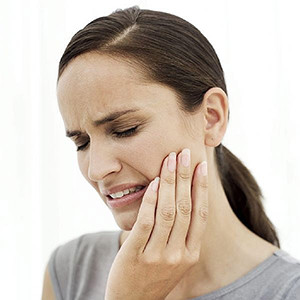 How Is TMJ Disorder Diagnosed?
How Is TMJ Disorder Diagnosed?
If you suffer from chronic jaw pain, ringing in the ears, or severe headaches, you need qualified dentists who have experience with neuromuscular disorders. North Shore dentists Dr. Dennis Hartlieb and Dr. Christopher Ching have undergone extensive training in the diagnosis and treatment of TMJ dysfunction.
What Is the TMJ?
The body has two temporomandibular joints: one on each side of the face, just below the ear. This joint makes it possible for us to open and close our mouths and move our jaw from side to side.
What is TMD?
Temporomandibular disorder (TMD or sometimes TMJ after the affected joint) is a disruption of the relationship between the upper and lower jaw. When the connective joint doesn’t function properly, it limits the range of motion in the jaw and creates painful pressure in parts of the face.
If this joint becomes misaligned, the entire myofascial system can become disrupted. Potential causes of TMJ disorder (also called TMD) include:
- Teeth grinding or clenching
- Injury to the face
- Arthritic damage to the joint
Patients who suffer from TMD may experience a range of unpleasant symptoms.
- Migraine headaches
- Pain and fatigue in the jaw, ears, face, and neck
- Clicking or grating noise when moving the jaw.
Many of the symptoms of TMJ dysfunction can be mistaken for other conditions, making the problem difficult to diagnose. However, Drs. Hartlieb and Ching have extensive experience helping patients manage TMJ pain and realign their bite with custom treatment options.
To determine if these symptoms are tied to the TMJ, we will evaluate you using tests like:
- X-rays of your teeth
- CT scan or MRI for detailed imaging of bone and soft tissue
- Testing pressure points in the face for signs of discomfort
- Observing movement of your jaw
- Listening to your jaw as you open and close it
TMJ Treatment Options
The most effective remedy for TMD symptoms will depend on the cause and intensity of the dysfunction. Our neuromuscular dentists might recommend treatment options such as:
- Over-the-counter or prescription pain medication
- Physical therapy
- Custom orthotic to relieve pressure on the joint and reposition the bite
Because it involves interactions of the facial muscles, joints, and ligaments, TMJ treatment can be complex. If you suffer from TMD, it is critical to find a dentist who understands the connection between the jaw joint and the rest of the body and knows how to restore systemic health and function.
To learn more about TMJ diagnosis and treatment, please contact Chicago Beautiful Smiles or call (847)729-6080 to schedule a personal evaluation. Drs. Hartlieb and Ching serve patients throughout the North Shore and downtown Chicago.

